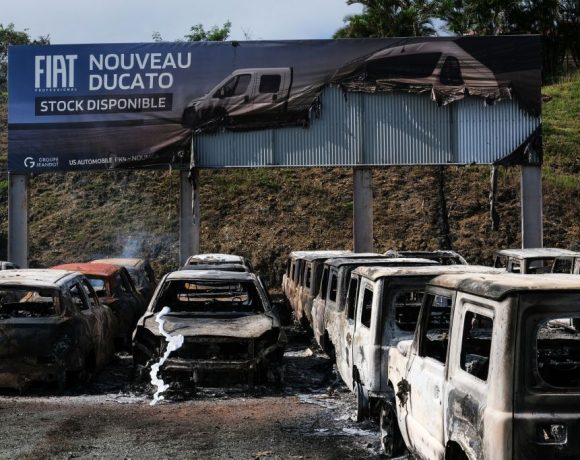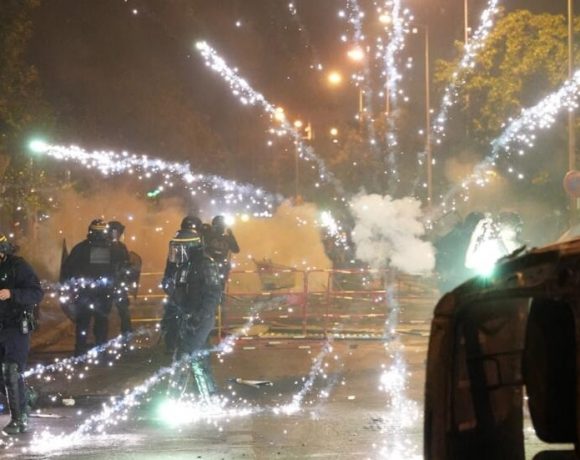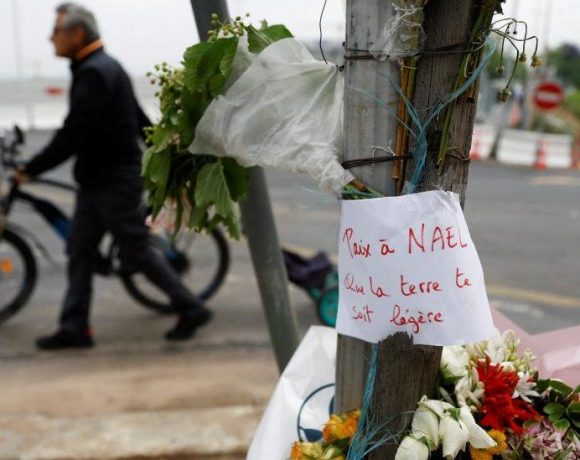The fatal shooting of Nahel M, a 17-year-old, has sparked widespread riots in various cities across France, including his hometown of Nanterre, located west of Paris.
Nahel, who was raised by his mother as an only child, worked as a pizza delivery man and was involved in playing rugby league. He had a tumultuous educational background and was enrolled in a college in Suresnes, near his residence, with the intention of becoming an electrician.
Residents of Nanterre spoke highly of Nahel, describing him as well-loved in the community where he lived with his mother, Mounia. He had a close relationship with his mother and expressed his love for her before she went to work on the day of the incident.
Tragically, in the morning, during a police traffic check, Nahel was fatally shot at close range in the chest while driving a Mercedes car, after attempting to drive away from the scene.
Nahel’s mother expressed deep sorrow and devastation, stating that she had dedicated everything to him and he was her only child and best friend. His grandmother remembered him as a kind and good-hearted boy.
The incident has drawn attention to the police shooting, leading to protests and calls for justice across France. Politicians and activists emphasized that a refusal to stop should not result in lethal force, emphasizing the right of all citizens to fair treatment.
Nahel had been involved with the Pirates of Nanterre rugby club for the past three years and participated in an integration program called Ovale Citoyen, which aimed to assist struggling teenagers by providing apprenticeships. He was learning to become an electrician through this program.
Jeff Puech, the president of Ovale Citoyen, described Nahel as a determined individual seeking social and professional integration, contrary to negative portrayals of him on social media. Puech praised Nahel’s exemplary attitude and knew him well during his time in the Vieux-Pont suburb before moving to the Pablo Picasso estate.
Notably, Nahel’s family had Algerian origins, and expressions of support and condolences were seen on a banner displayed on the Paris ring road. Some individuals in France, particularly those from Arab or black backgrounds, highlighted the issue of police violence and demanded justice for Nahel.
Nahel had been subjected to multiple police checks, known as refus d’obtempérer (refusals to cooperate), with records indicating up to five such instances since 2021. It was reported that he had recently been detained for refusing to cooperate and was scheduled to appear in juvenile court in September. His recent troubles mostly involved incidents related to cars.
The riots triggered by Nahel’s death serve as a reminder of the 2005 events, when two teenagers, Zyed Benna and Bouna Traoré, were electrocuted while evading police after a football game and sought refuge in an electricity substation in the Parisian suburb of Clichy-sous-Bois.
The emotional impact of Nahel’s death resonates with many in France, as they can relate to the incident and perceive the potential for it to have happened to themselves or their loved ones.
Picture Courtesy: Google/images are subject to copyright



